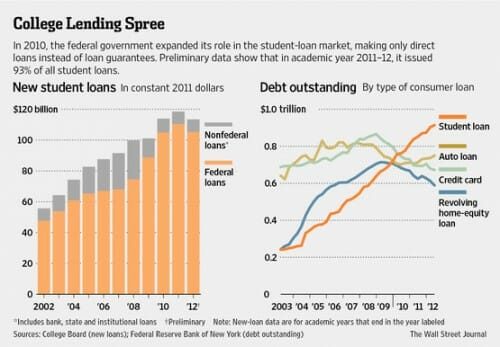I am a bit late to the game in addressing Krugman's comments several days ago when he said:
But the truth, hard as it may be for ideologues to accept, is that unrestricted movement of capital is looking more and more like a failed experiment.
This was in response to the implosion of Cyprus banks, which was exacerbated (but not necessarily caused) by the banks being a home for a lot of international hot money - deposits so large they actually dwarfed the country's GDP.
I generally rely on Bastiat's definition of the role of the economist, which I will quote from Wikipedia (being too lazy on this Friday morning to find a better source):
One of Bastiat's most important contributions to the field of economics was his admonition to the effect that good economic decisions can be made only by taking into account the "full picture." That is, economic truths should be arrived at by observing not only the immediate consequences – that is, benefits or liabilities – of an economic decision, but also by examining the long-term second and third consequences. Additionally, one must examine the decision's effect not only on a single group of people (say candlemakers) or a single industry (say candlemaking), but on all people and all industries in the society as a whole. As Bastiat famously put it, an economist must take into account both "What is Seen and What is Not Seen."
By this definition, Krugman has become the world's leading anti-economist. Rather than reject the immediate and obvious (in favor of the larger picture and the unseen), he panders to it. He increasingly spends his time giving intellectual justification to the political predilection for addressing symptoms rather than root causes. He has become the patron saint of the candle-makers petition.
I am not naive to the fact that there are pools of international hot money that seem to be some of the dumbest money out there. Over the last few years it has piled into one market or another, creating local asset bubbles as it goes.
But to suggest that international capital flows need to be greatly curtailed merely to slow down this dumb money, without even considering the costs, is tantamount to economic malpractice.
You want to know what much of the world outside of Western Europe and the US would look like without free capital flows? It would look like Africa. In fact, for the younger folks out there, when I grew up, countries like China and India and Taiwan and Vietnam and Thailand looked just like Africa. They were poor and economically backwards. Capital flows from developed nations seeking new markets and lower cost labor has changed all of that. Over the last decade, more people have escaped grinding subsistence poverty in these nations than at any other time in history.
So we have the seen: A million people in Cyprus face years of economic turmoil
And the unseen: A billion people exiting poverty
By pandering to those who want to expand politicians' power based on a trivial understanding of the seen and a blindness to the unseen, Krugman has failed the most important role of an economist.
Other thoughts: I would offer a few other random, related thoughts on Cyprus
- Capital controls are like gun and narcotics controls: They stop honest people and do little to deter the dishonest. In the case of Cyprus, Krugman obviously would have wanted capital controls to avoid the enormous influx of Russian money the overwhelmed the government's effort to stabilize the banks. But over the last several weeks, the Cyprus banks have had absolute capital controls in place - supposedly no withdrawals were allowed. And yet when the banks reopened, it become increasingly clear that many of the Russians had gotten their money out. Capital controls don't work as a deterrence to money that is already corrupt and being hidden.
- No matter what anyone says, the huge capital inflows into Cyprus had nothing to do with the banking collapse. The banks had the ability to invest the money in a range of international securities, and the money was tiny compared to the size of those security pools. So this is not like, say, a housing market where in influx of money might cause a bubble. The only harm caused by the size of the Russian investments is that once the bank went bad, the huge size of the problem meant that the Cyprus government did not have the resources to bail out the bank and protect depositors from losses.
- Capital controls are as likely to make bubbles worse as they are to make them better. Certainly a lot of international money piling into a small market can cause a bubble. But do capital controls really create fewer bubbles? One could easily argue that the Japanese asset bubble of the late 80's would have been worse if all the money were bottled up in the country. When the Japanese went around the world buying up American movie studios and landmark real estate, that was in some sense a safety valve reducing the inflationary pressure in Japan.
- Capital controls are the worst sort of government expropriation. You hear on the news that the "haircut" taken by depositors in Cyprus might be 20% or 80% or whatever. But in my mind it does not matter. Because once the government put strict capital controls in place, the haircut effectively became 100%, at least for honest people that don't have the criminal ability or crony connections to beat the system. Cyprus basically produces nothing. Since money is only useful to the extent that it can buy or invest in something, then bottling up one's money in Cyprus basically makes it worthless.
- Capital controls are a prelude to protectionism. First, international trade is impossible without free flow of capital. No way Apple is going to sell ipods in Cyprus if they cannot at some point repatriate their profits. Capital controls can also lead to export controls. If I can't export money, I might instead buy jets, fly them out of the country, and then sell the jets.
- Let's not forget that the core of this entire problem is a government, not a private, failure. Banks and investors treated sovereign euro-denominated debt as a risk-free investment, and banking law (e.g. Basil II) and pension law in most countries built this assumption into law. Cyprus banks went belly-up because the Greeks, in whom they had (unwisely) invested most of their funds, can't exercise any fiscal responsibility in their government. If European countries could exercise fiscal responsibility in their government borrowing, 80% of the banking crisis would not exist (housing bubbles and bad mortgage securities have contributed in some countries like Spain). There is a circle here: Politicians like to deficit spend. They write regulations to encourage banks to preferentially invest in this government paper. When the government debt gets iffy, and the banks face collapse, the governments have to bail them out because otherwise there is no home for their future debt. The bailouts get paid for with more debt, which gets crammed back into increasingly over-leveraged banks. What a mess.
- All of this creates an interesting business school problem for the future: What happens when there are no longer risk-free investments? Throughout finance one talks about risk free rates and all other risks and risk premiums and discussed in reference to this risk-free benchmark. In regulation, much of banking capital regulation and pension regulation is based on there being a core of risk free, liquid investments. But what if these do not exist any more?
- I have thought a lot about a banking model where the bank accepts deposits and provides basic services but does no lending - a pure deposit bank with absolute transparency on its balance sheet and investments. I think about a web site depositors can check every day to see exactly where depositors money is invested and its real time values. Only listed, liquid securities with daily mark to market. Open source investing, as it were. In the past, deposit insurance has basically killed this business model, but I think public confidence in deposit insurance just took a big-ass hit this week.
Postscript: I don't want to fall into a Godwin's law trap here, but I am currently reading Eichmann in Jerusalem and it is impossible for me to ignore the role strict capital controls played in Nazi Germany's trapping and liquidation of the Jews.
PS#2: Oops,
The extent of the control over all life that economic control confers is nowhere better illustrated than in the field of foreign exchanges. Nothing would at first seem to affect private life less than a state control of the dealings in foreign exchange, and most people will regard its introduction with complete indifference. Yet the experience of most Continental countries has taught thoughtful people to regard this step as the decisive advance on the path to totalitarianism and the suppression of individual liberty. It is, in fact, the complete delivery of the individual to the tyranny of the state, the final suppression of all means of escape—not merely for the rich but for everybody.

